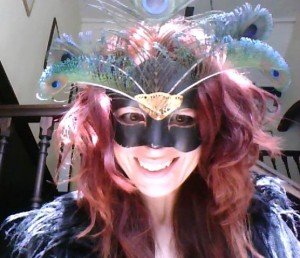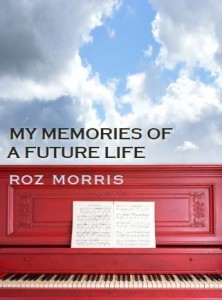A Journey of Souls – Why Novels Are the Most Truthful Medium
The first time someone talks to you because they’ve read your novel, it is very peculiar.
The novel I have just published – My Memories of a Future Life – is about a classical pianist who has to stop playing because of a mysterious injury. Her desperation and her search for a cure are the journey of the book.
While I was writing it, it felt like my own life. Although I did not really live what my main character did in flesh, blood, bruises and miles, I lived it in heartbeats. Her journey probably taught me as much as it teaches her. Now it is out and she is telling her story to complete strangers. Who are contacting me.
Each time I feel privileged and humbled. Sometimes I recognise their names – they’re folks I exchange quips with on Twitter. Sometimes they are completely new to me. But it’s as if we are friends of long standing. They confess to hopes and dreams they put away thirty years ago. They tell me about wrong turnings and regrets. As though we’re staying up all night and it’s truth hour. They are telling me the book seems to be about them.
This is why novels are such a powerful medium. The personal connection is far greater than with TV or movies. Radio is certainly intimate; one voice talking, and you the listener supply the pictures. But novels reach deeper. Although all authors have a voice, when you read it is a hybrid of them and you. It is the voice of your own thoughts, the closest companion you could ever have. It tells the profoundest truth.
And as for me, the writer? I feel like I’ve been in an overwhelming dream, and have suddenly found I wasn’t there alone.
—
Roz Morris is a ghostwriter, editor and the author of Nail Your Novel – Why Writers Abandon Books and How You Can Draft, Fix and Finish With Confidence, available from Amazon. She has a website and a blog. You can follow her on Twitter at@dirtywhitecandy and @ByRozMorris.
Order the ebook or paperback copy of her latest book:
My Memories of a Future Life is out now in full, on Kindle.
My Memories of a Future Life in on Kindle at UK Amazon.
My Memories of a Future Life in Paperback on US Amazon.
You can listen to an audio of the first four chapters for free here.
Category: British Women Writers, Contemporary Women Writers, On Writing, Women Writing Fiction



























Great post – We do put so much of ourselves into our novels. And the characters’ journey leaves its mark on us as well. It’s both humbling and inspiring to have readers reach out to you after reading one of your novels. Knowing that I connected with them means more than anything. I’ve often struggled to put it into words – you did so beautifully.
Thank you, Heather. We do put so much of ourselves in – and the connection that readers send back never ceases to amaze me.
By the way, I didn’t realise there were so many comments gathering here, unanswered. I thought the post had disappeared quietly behind other more recent ones, then the site emailed me today about Heather’s. Thank you, everyone who was kind enough to leave a reply – I really appreciate you stopping by.
I really enjoyed this blog. I feel a kind of bereavement when I finish writing a novel because my journey and my characters’ journeys feel so interlinked. I am often surprised that my characters appear to work out better ways to cope with certain problems than I do and therefore they teach me more than I teach them – I understand that feeling. I haven’t published my novels yet although I’ve let quite a few people read them with similar responses. I would be delighted to get the reactions that you have.
Gill, that bereavement is so real, isn’t it? I couldn’t let go of my novel for days! And I definitely agree that characters often find better ways to cope than I would if left to my own devices. I learn a lot from them too. Thank you so much for your lovely comment.
This is a great post! It’s so interesting to think about. A long time ago, back in high school, I wrote a “novel” on notebook paper and stuck it in a binder because I couldn’t afford a computer, much less to print so many pages. I gave it to my best friend to read (thanks to her some of the pages remain tearstained) and, without my knowing, passed it on to some people she knew to check out. One of them stopped me in the hallway, eyes glassy with tears, and told me how much it meant to her–how much she could relate to it. At the time, I was thunderstruck, but I’ll never forget that moment. Never forget how words scribbled on a page can impact someone so much and create relationships I’d never known were there.
It’s amazing that your book, about something so specific, can be something so relatable to the public. Now that is truly astounding 🙂
Janice, what a story to treasure. Never forget it! And thank you for your lovely words.
I like what you wrote. It is like I have often said I do not write stories as much as they write me. Whether it is fiction or non-fiction I am changed when I sit down to put it on paper. I go on the journey almost as much as the character; and certainly as much as the reader.
And I am usually humbled that there is a reader. The journey is important, and not just the discipline of having written, but the internal journey of your soul that writing requires. I also like that there is a sense of unspoken friendship, admiration and respect amongst writers. That type of edification is worth more than parties and accolades; but then again those trappings can also renew our souls in tangible ways, too. Because one day when I walk through a bookstore and someone is discussing my work, I am sure I will begin another journey entirely.
Thank you, Shelby. I’m sure I set out intending to take the reader on a journey, and then – like an actor forgetting the audience is there – I start exploring on my own.
I think you’re right about this unspoken respect among writers – and again that makes what we do quite like the world of acting. Only actors understand how deep actors have to mine to find the truth. And only writers know what is involved in reaching for the depth in a story.
thank you! I totally understand and agree with you.
My novels are visionary fiction, mostly about the Divine Feminine, so the stories are often initiatory journeys for both my character, me, and my readers. It is indeed humbling and my heart opens wide when I hear that someone has had a magical experience from reading my story and aligning with what my characters have undergone.
Thank you, Jodine! The initiatory journey… certainly that’s a good way to describe many novels I’ve enjoyed.
Well said, well said. My book is based on my mom’s life, but it felt like I was writing about my own. It speaks volumes that your book is affecting readers that way; you are absolutely right that a book is not just the author’s journey, but the reader’s connection to it. After all, we write to be read.
Beautiful!
Thank you, Tina. I never realised how strange it would be to be thoroughly read, though.
Great post Roz. I agree – a novel creates a very personal connection – it’s powerful!
Thanks, Jemi! That special connection is one of the reasons I like print. I’m not a Kindle-phobe by any means, but I like to look at my shelves and remember the times I’ve spent with my copy of a book that was special to me.
Great post Roz and best wishes. I love the picture!
Completely agree with you. When I write I laugh and I cry along with my characters.
It used to worry me. It can be disconcerting for your entourage. “What’s wrong,” they ask.
Well…
Ah, when you’ve done it you understand only too well, Elle! I was poleaxed when I got to the end of my book. Lord knows what actors must feel like.
Well done, Roz – I hope you have the biggest party, and everyone gives you champagne!
Thank you, Jo! I have to admit there has been a teensy bit of wassailing…